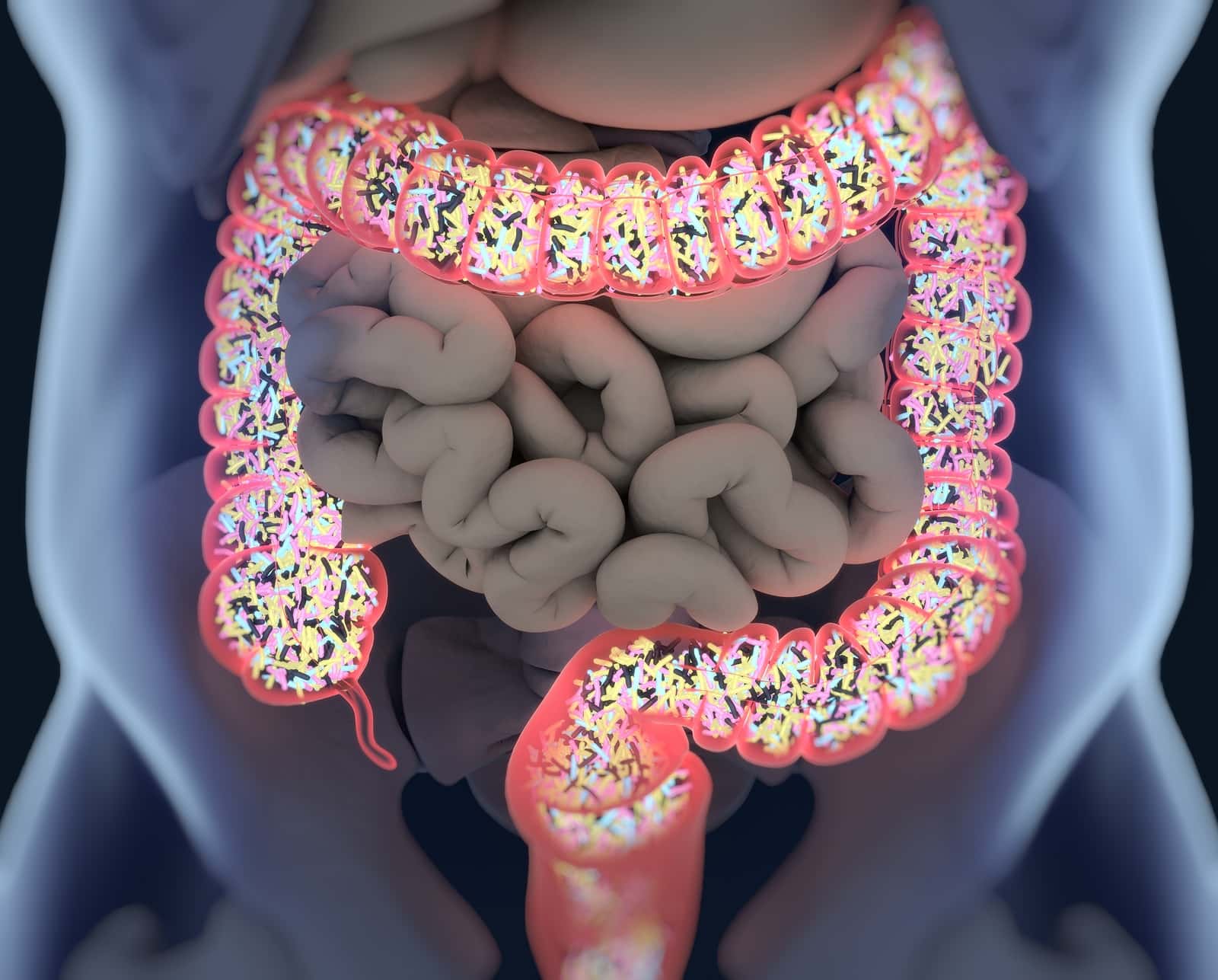
In recent years researchers have become extremely interested in the collection of microorganisms living in and on our bodies. This microbiome has a profound impact on our overall health. Few people would be surprised to learn that the microbiome has a powerful effect on digestive health. Many would be astonished, though, to learn how these microbes can affect conditions such as Parkinson disease or cancer.
Do Changes in the Gut Microbiome Indicate Parkinson Disease?
Researchers have long suspected that there is a connection between the gut microbiome and the development of Parkinson disease (PD). That’s because the earliest symptoms of PD often show up in the digestive tract. Constipation, for example, is a common complaint in patients dealing with Parkinson’s and it often manifests as one of the earliest symptoms.
Research has detected changes in the gut microbiome associated with the development of PD (NPJ Parkinson’s Disease, May 21, 2024). Specifically, PD patients had higher levels of Akkermansia muciniphila and lower levels of Roseburia intestinalis and Faecalibacterium prausnitzii. Although the balance of intestinal microbes is quite individual, these trends held up across countries. In addition, people with Parkinson disease had lower levels of short chain fatty acids manufactured by gut bacteria.
B vitamins, such as riboflavin and biotin, are also produced at lower levels in these patients. As a result, the researchers suggest that some people suffering from Parkinson disease might benefit from B vitamin supplementation. Of course, if the microbiota could be protected or restored, that might also offer clinical benefits.
How Does the Microbiome Affect the Response to Cancer Treatment?
Researchers at MD Anderson Cancer Center report that the microbiome can impact how patients respond to cancer treatment. In their study, they treated 105 patients suffering from metastatic melanoma with the latest immunotherapy drugs called checkpoint inhibitors. These are medications such as nivolumab (Opdivo) and pembrolizumab (Keytruda). (We wrote about these medications here and here.)
Diversity Improves Survival:
In this study, patients with the greatest diversity of bacteria in their GI tracts had the best response and the longest progression-free survival rates. These are determined by considering how long it takes for the cancer to get worse.
Specific types of bacteria affected the treatment in definable ways. For example, people with more Bacteroidales did less well, but those with plenty of Faecalibacterium prausnitzii responded very favorably.
What Determines Your Intestinal Flora?
Many factors can shape the microbiome, including diet, exercise and medications. As a result, cancer researchers might want to alter it to maximize the newest immunotherapy treatments. Oncologists have not determined yet whether they will prescribe a particular diet prior to treatment or possibly offer a fecal transplant. Either is possible.
ASCO annual meeting, June 5, 2017
photo credit: Yale Rosen https://www.flickr.com/photos/pulmonary_pathology/5601356718/ cc license cropped
Other Studies of the Microbiome and Cancer Treatment:
This may not be the only study to find that the microbiome changes the response to cancer treatment with checkpoint inhibitors. Last year, scientists began a study of women with ovarian cancer.
A trial of the immunotherapy agent pembrolizumab includes analysis of each participant’s microbiome as part of the trial.
Studying Immunotherapy Against Ovarian Cancer:
The 40 women in the study at Roswell Park Cancer Institute have recurrent ovarian cancer. They are getting a combination of anticancer drugs including pembrolizumab (Keytruda), bevacizumab (Avastin) and cyclophosphamide (Cytoxan). Keytruda is a relatively new drug that has been approved for treating melanoma and non-small cell lung cancer. This is one of the first trials to pit Keytruda against ovarian cancer.
Examining the Microbiome:
It is also the first cancer study to analyze samples from the stool, skin and vaginas of the volunteers, along with samples of their tumors and blood. The researchers want to know how the microbiome affects immune responses. With these data, they hope to discover whether an individual woman’s microbiome has an impact on the effectiveness of her cancer treatment.
Usually, the term microbiome describing the DNA of the microbes that normally live in our digestive tracts. That includes bacteria, yeast, viruses and other microscopic beings. It makes sense that these inhabitants can affect our digestive health. (To learn more about that topic, you might want to listen to this interview.)
The gut microbes can also have a significant effect on our nervous systems. (Here is an interview on that topic.) That seems less intuitive, though, and so does the potential impact of digestive tract ecology on the immune system. We found this a fascinating topic a few years ago. We will be interested to see what the scientists discover about the interaction between microbes and cancer immunotherapy.
Citations
- Nishiwaki H et al, "Meta-analysis of shotgun sequencing of gut microbiota in Parkinson's disease." NPJ Parkinson’s Disease, May 21, 2024. DOI: 10.1038/s41531-024-00724-z

